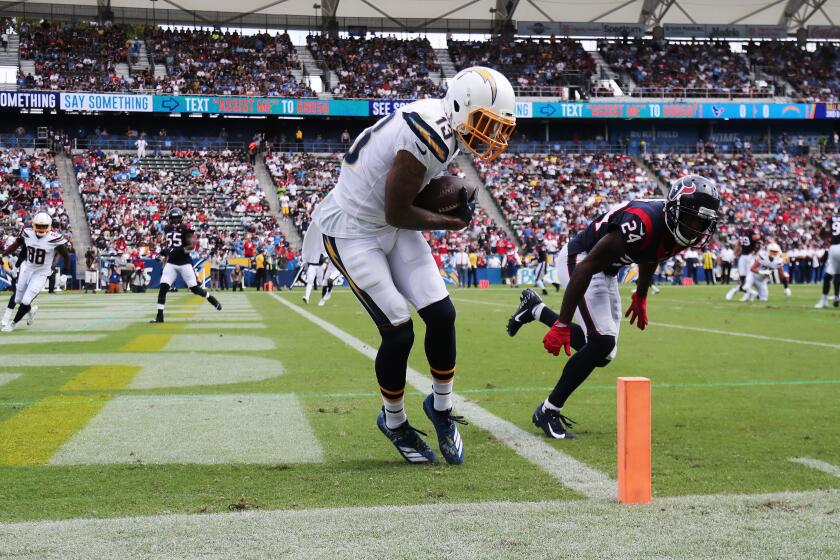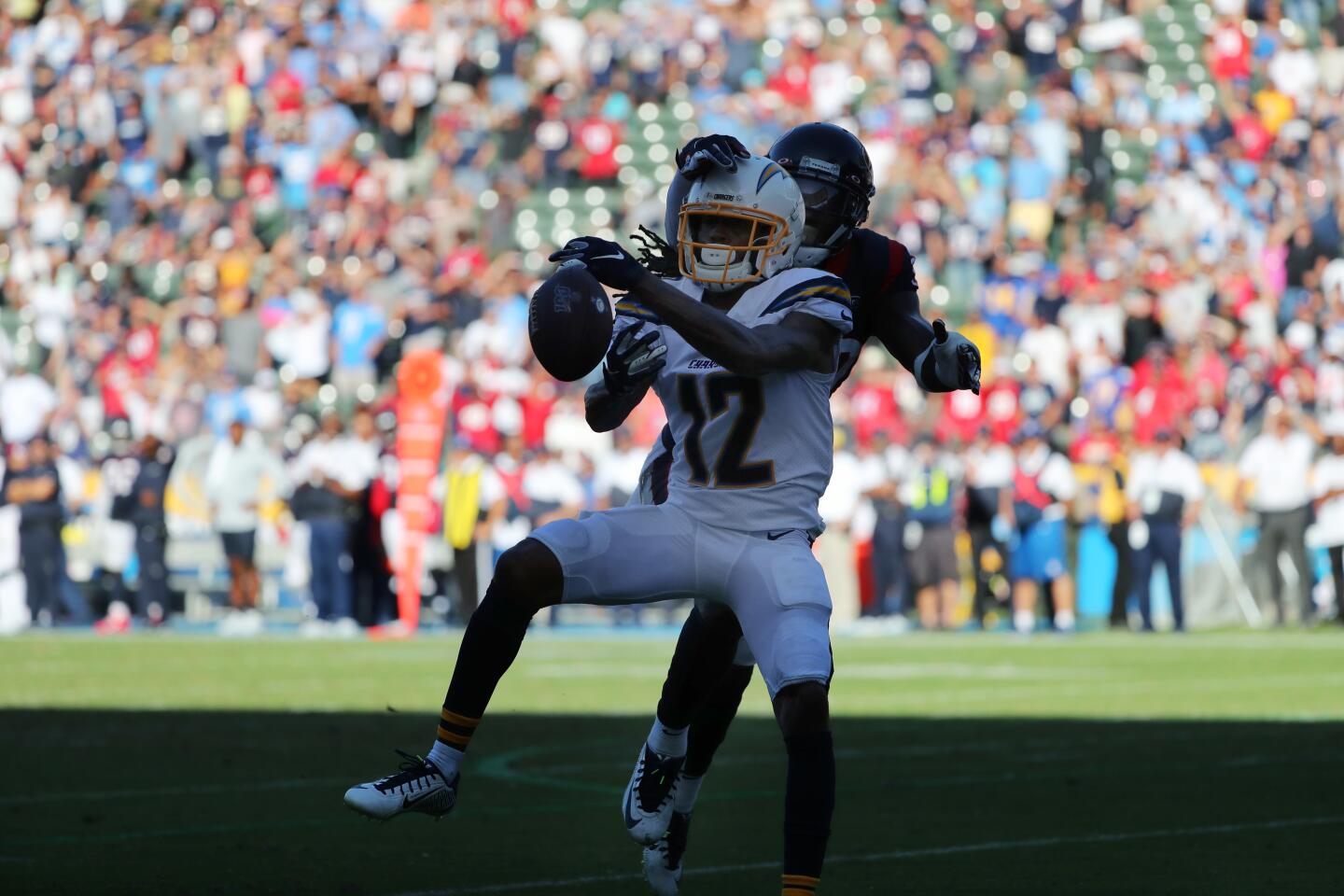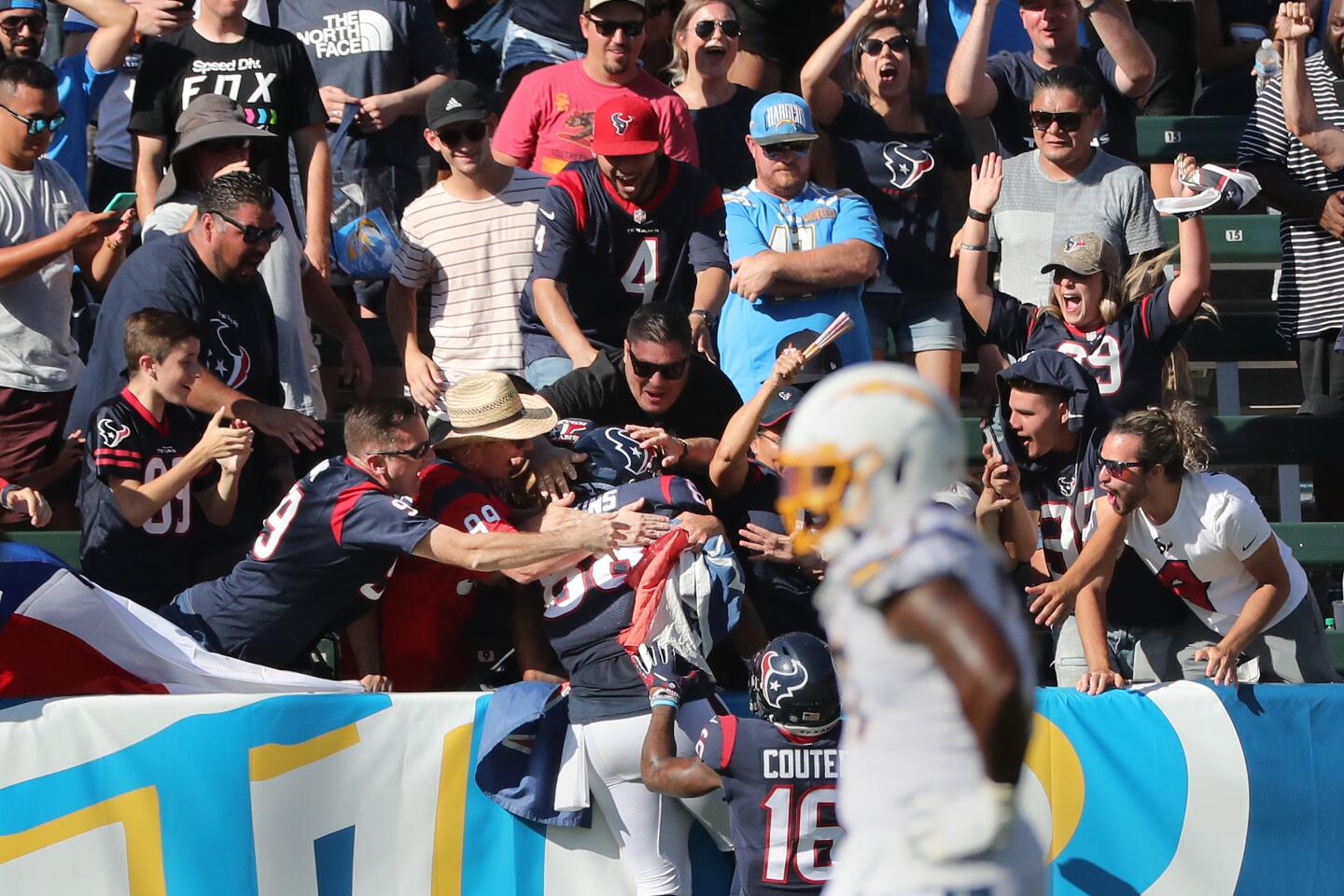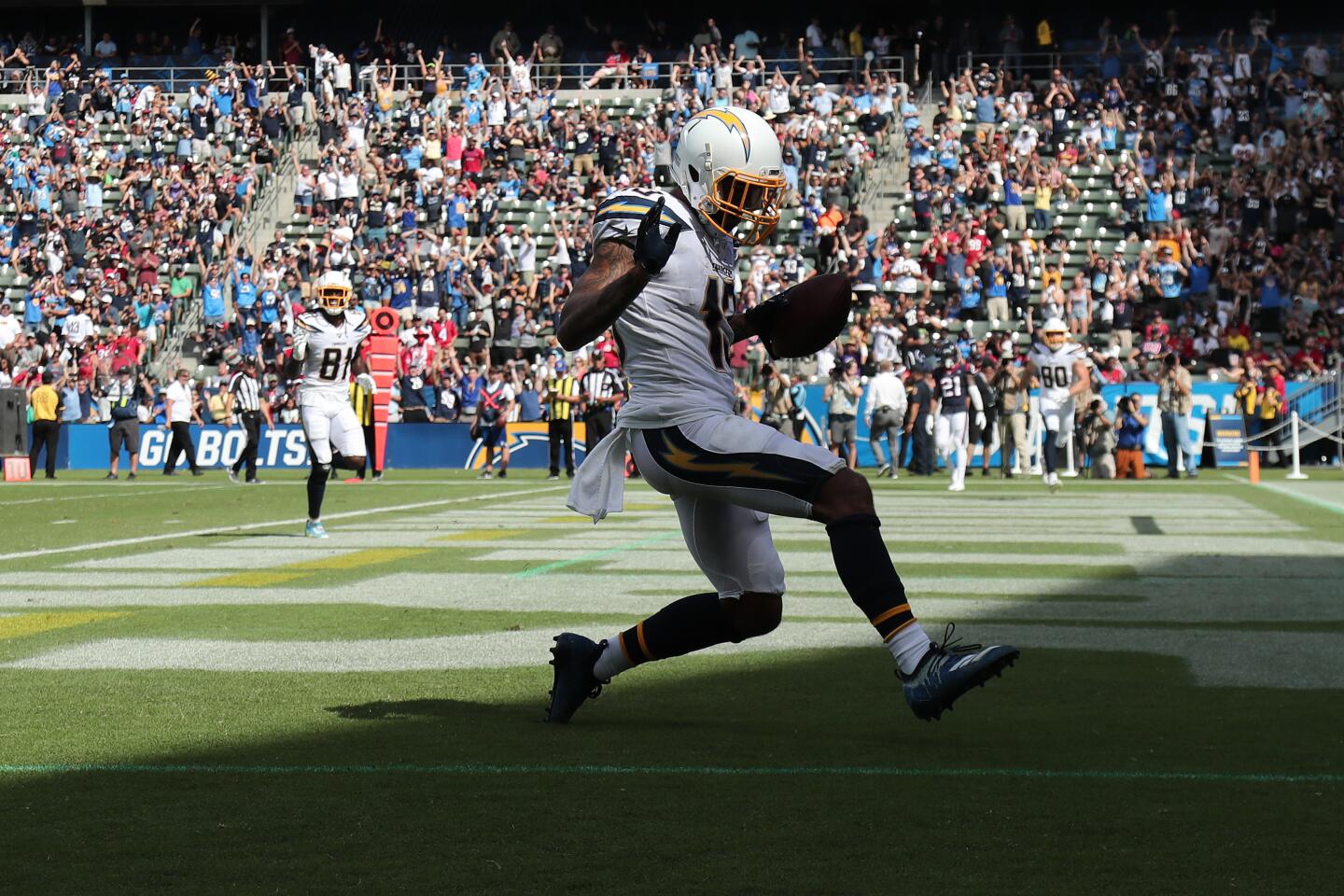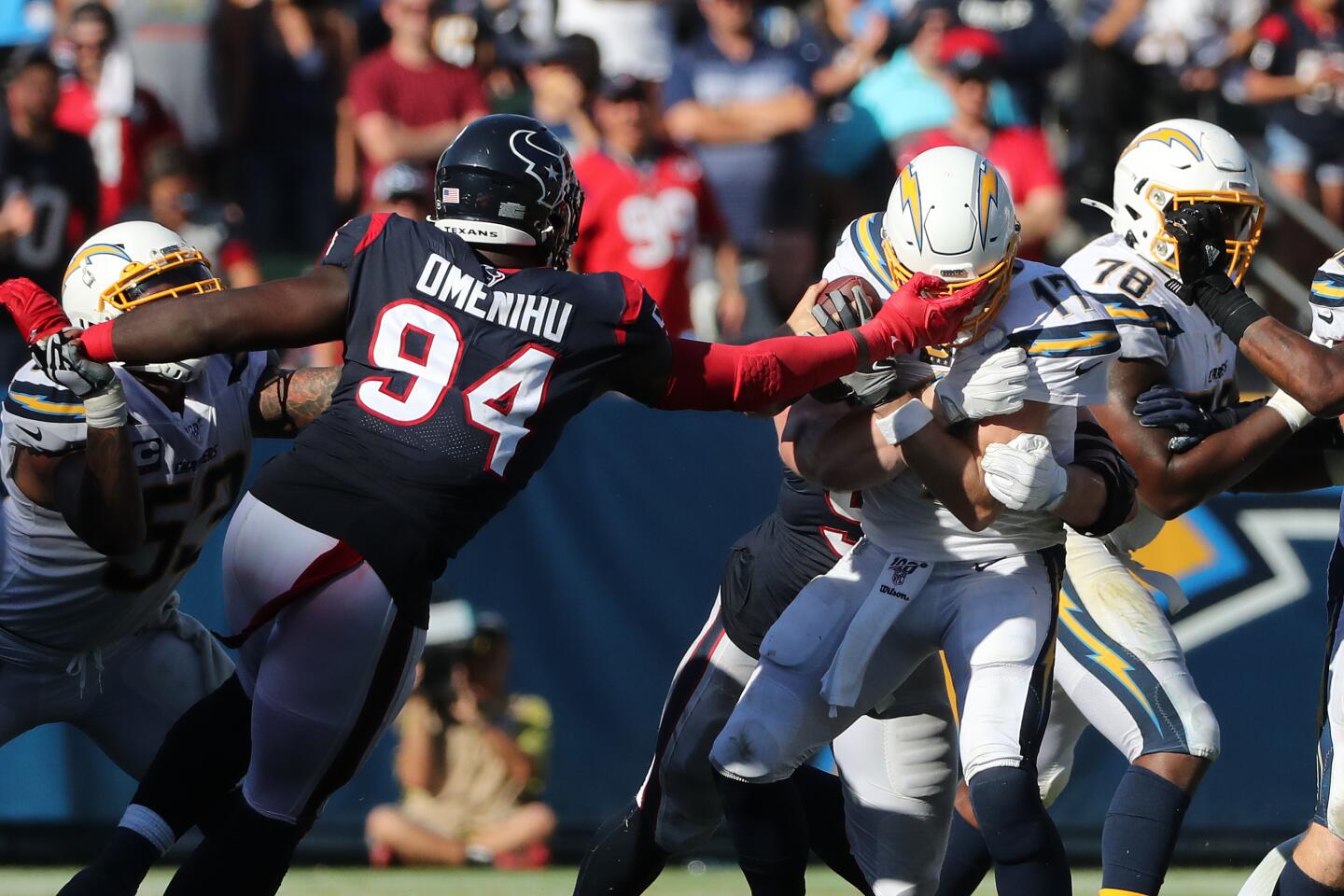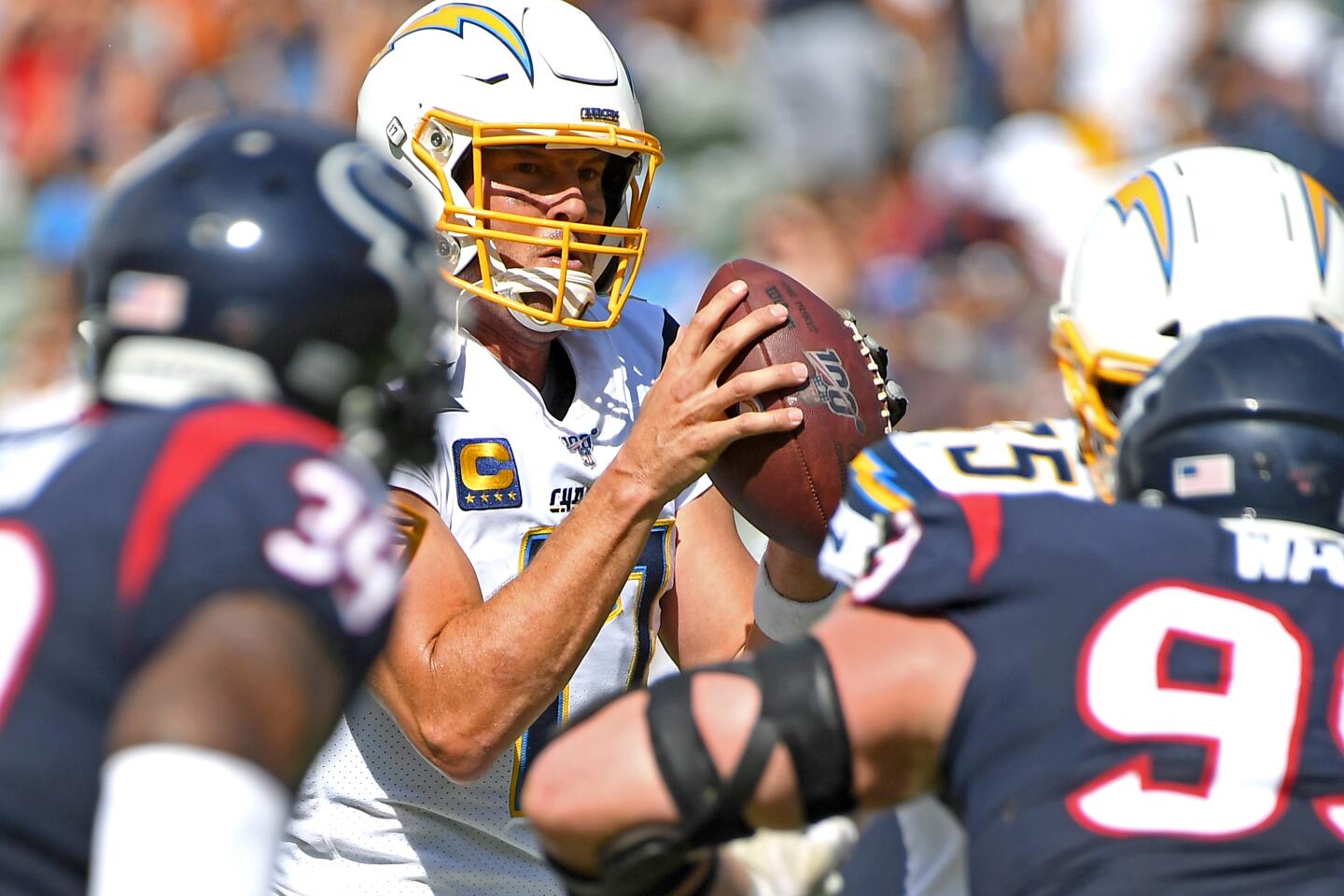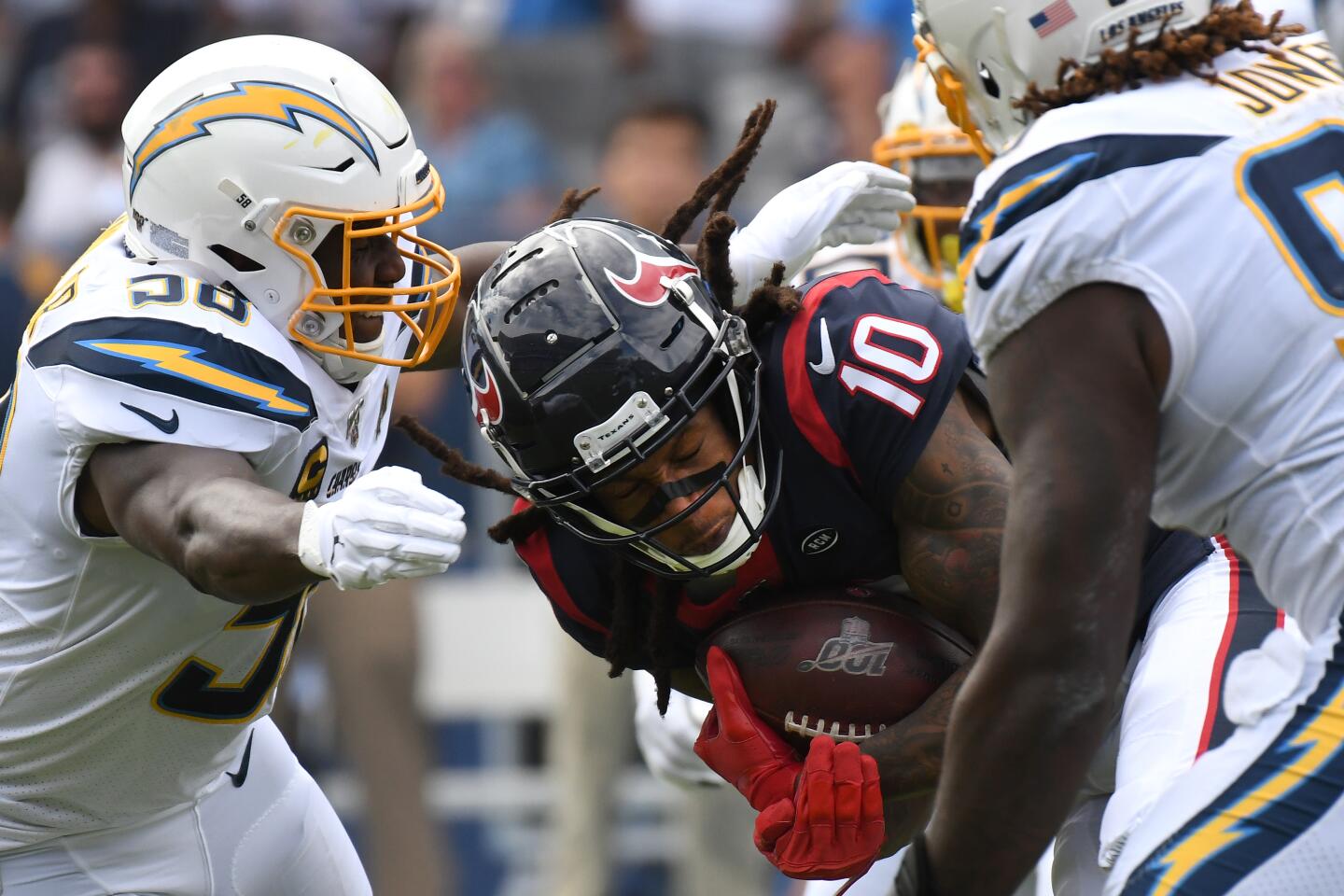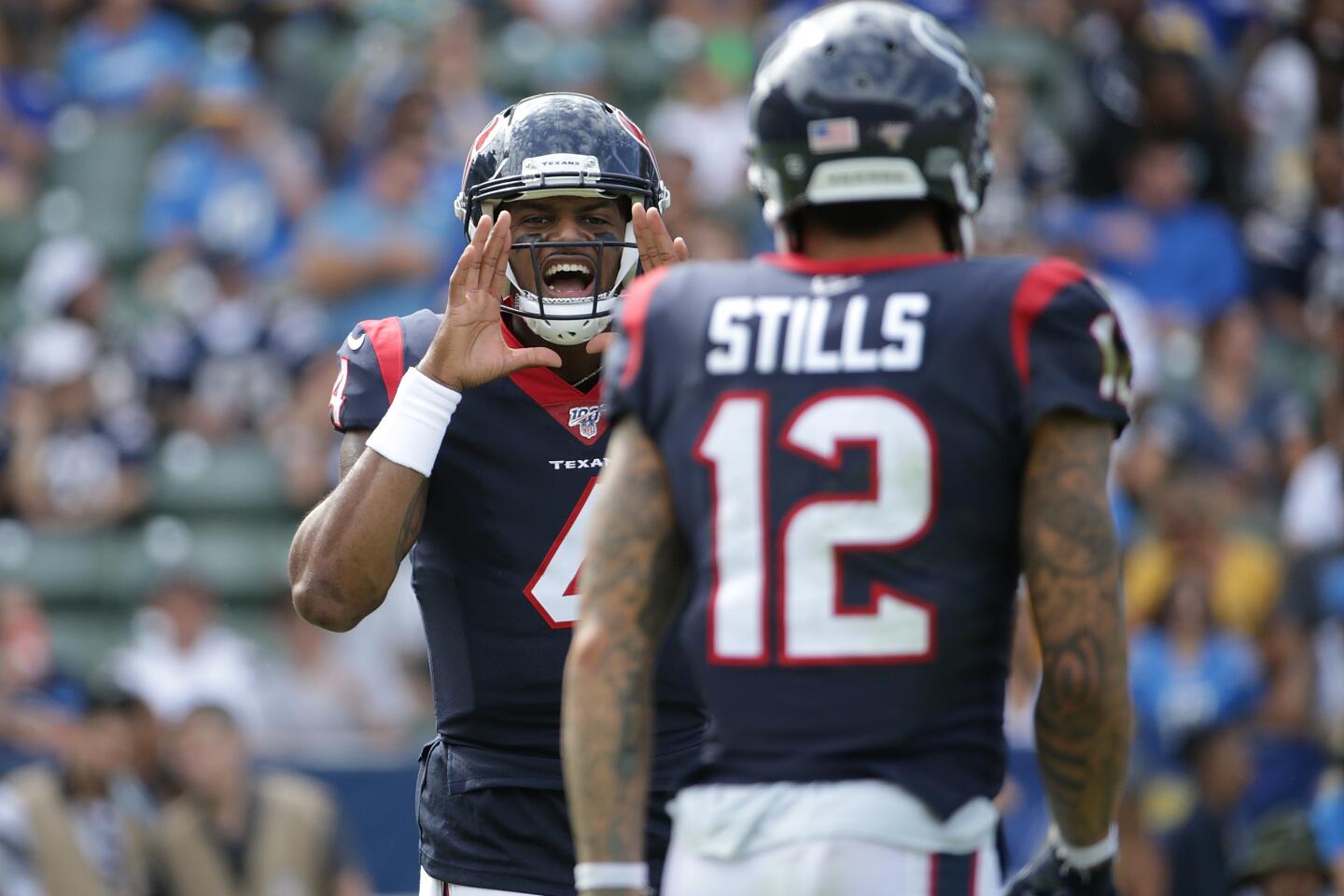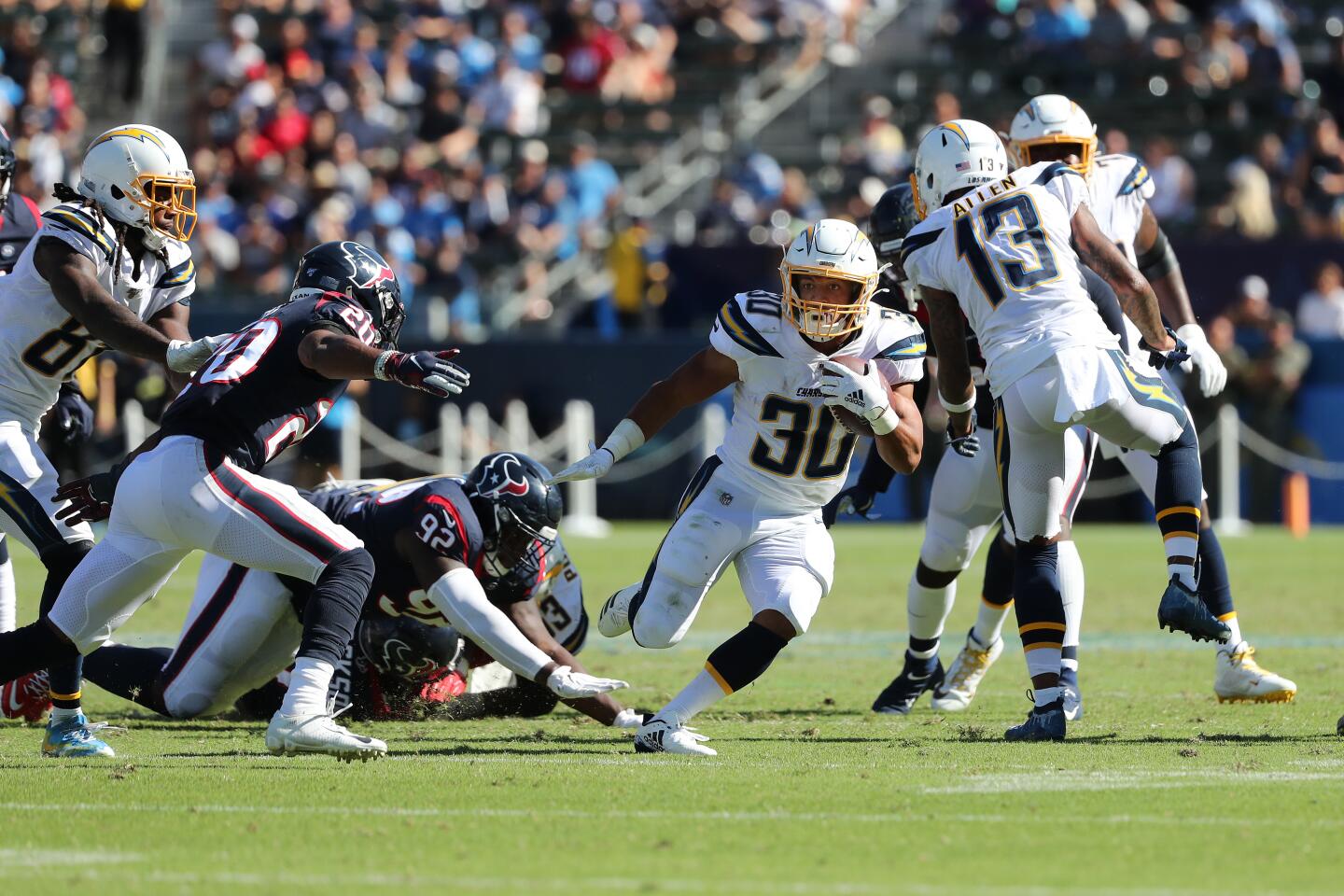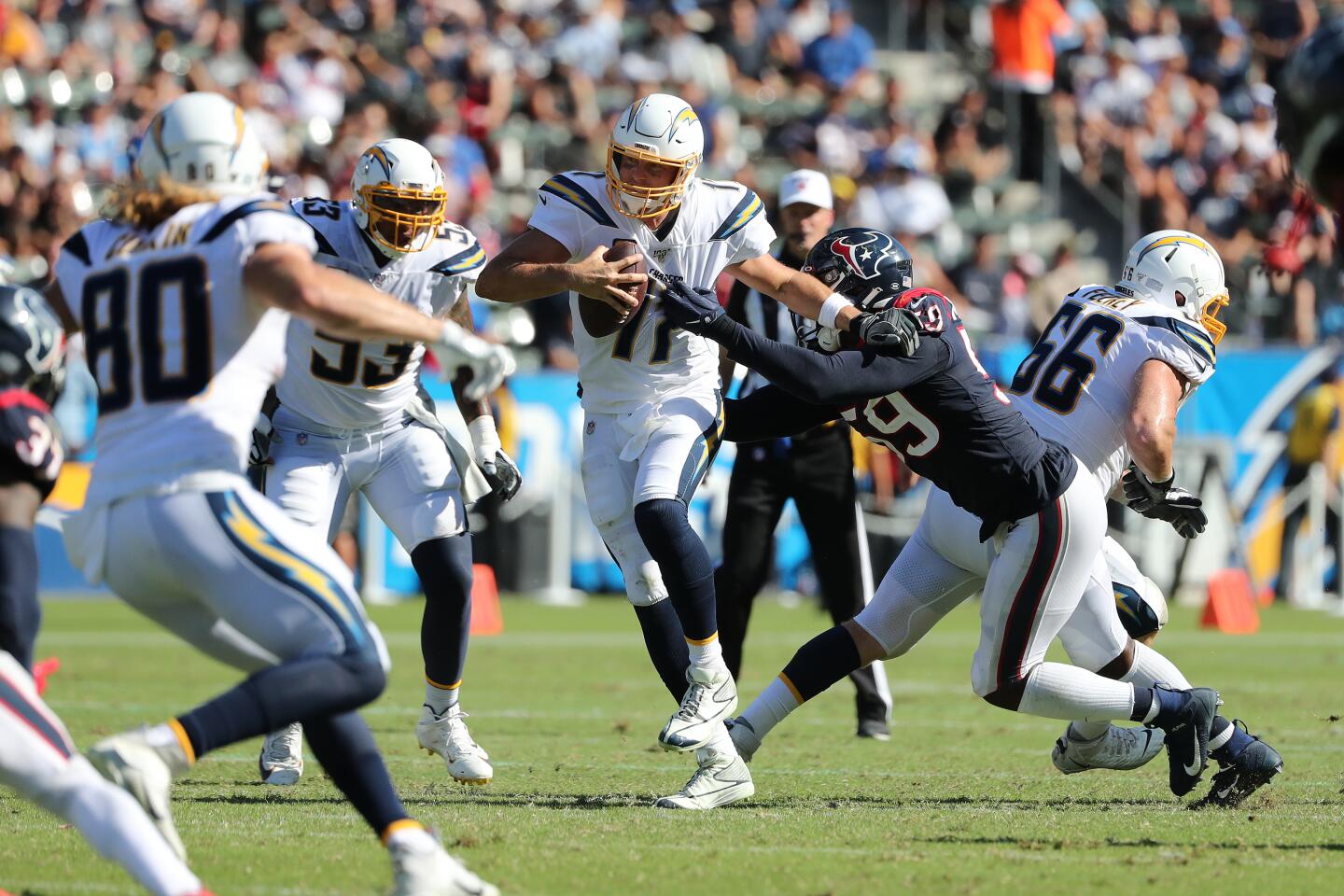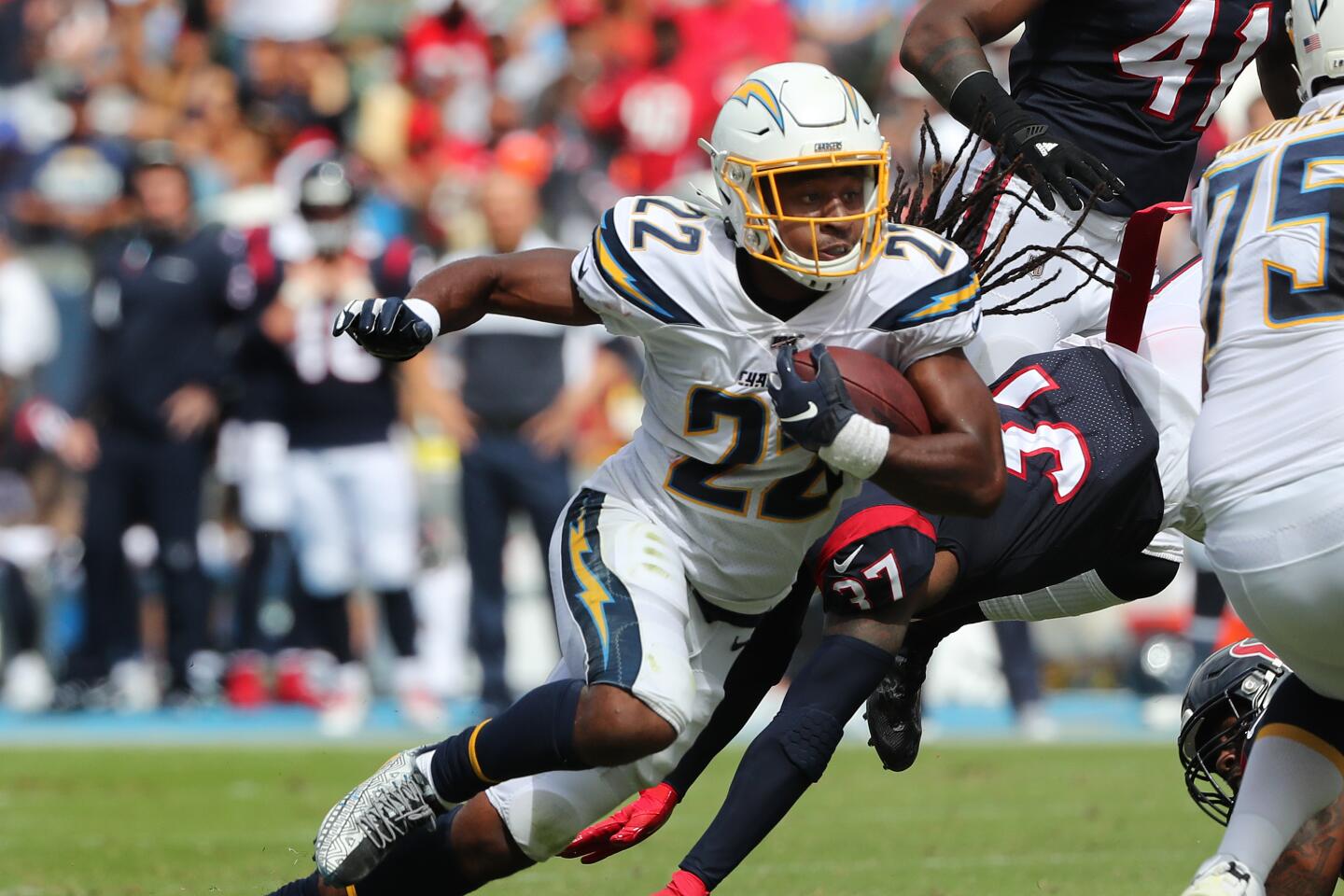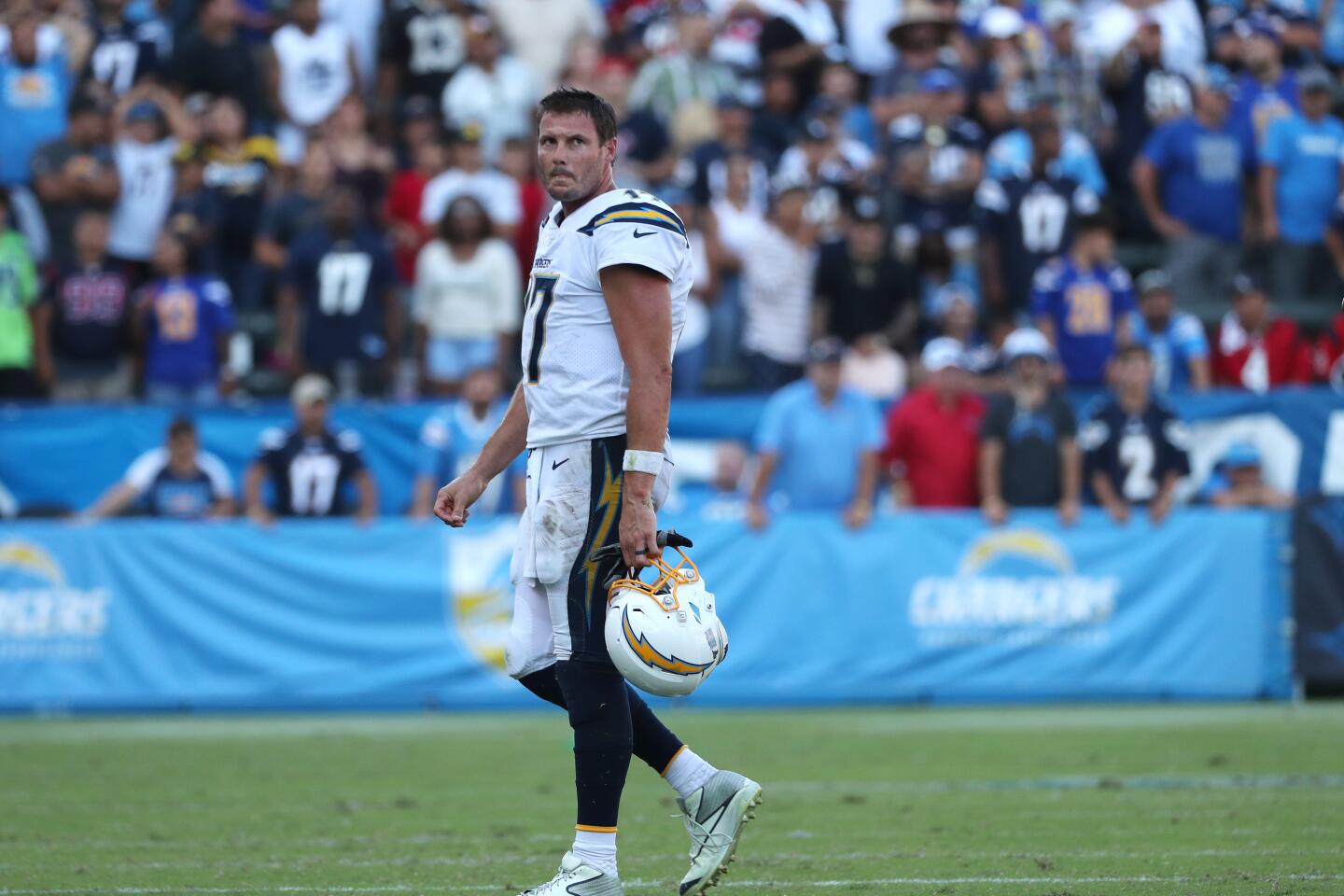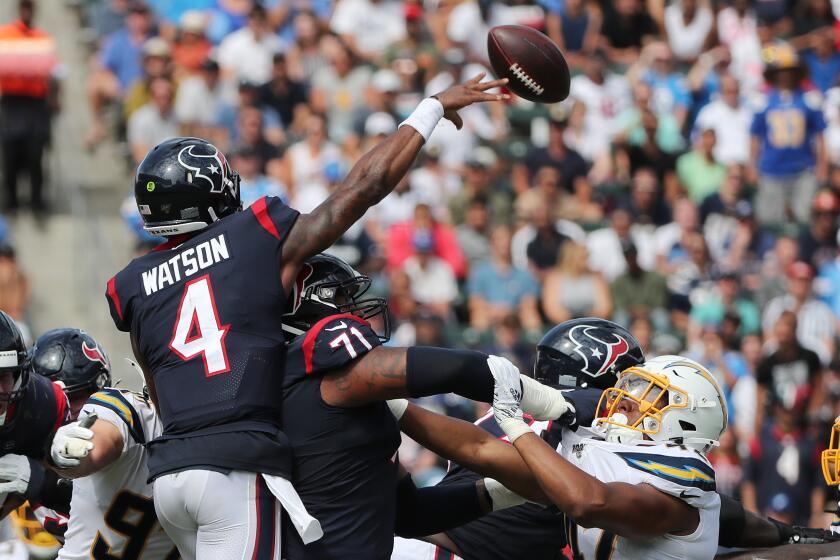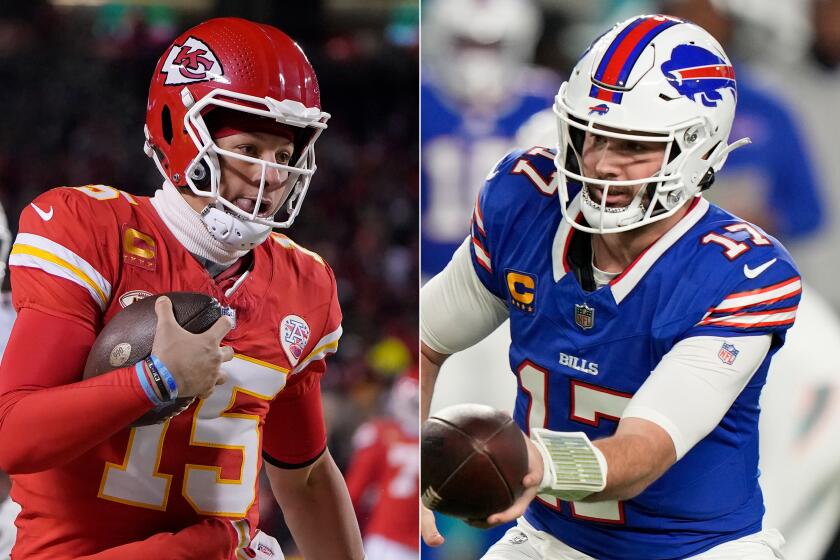Chargers can’t stop Texans’ second-half surge or deliver late in loss
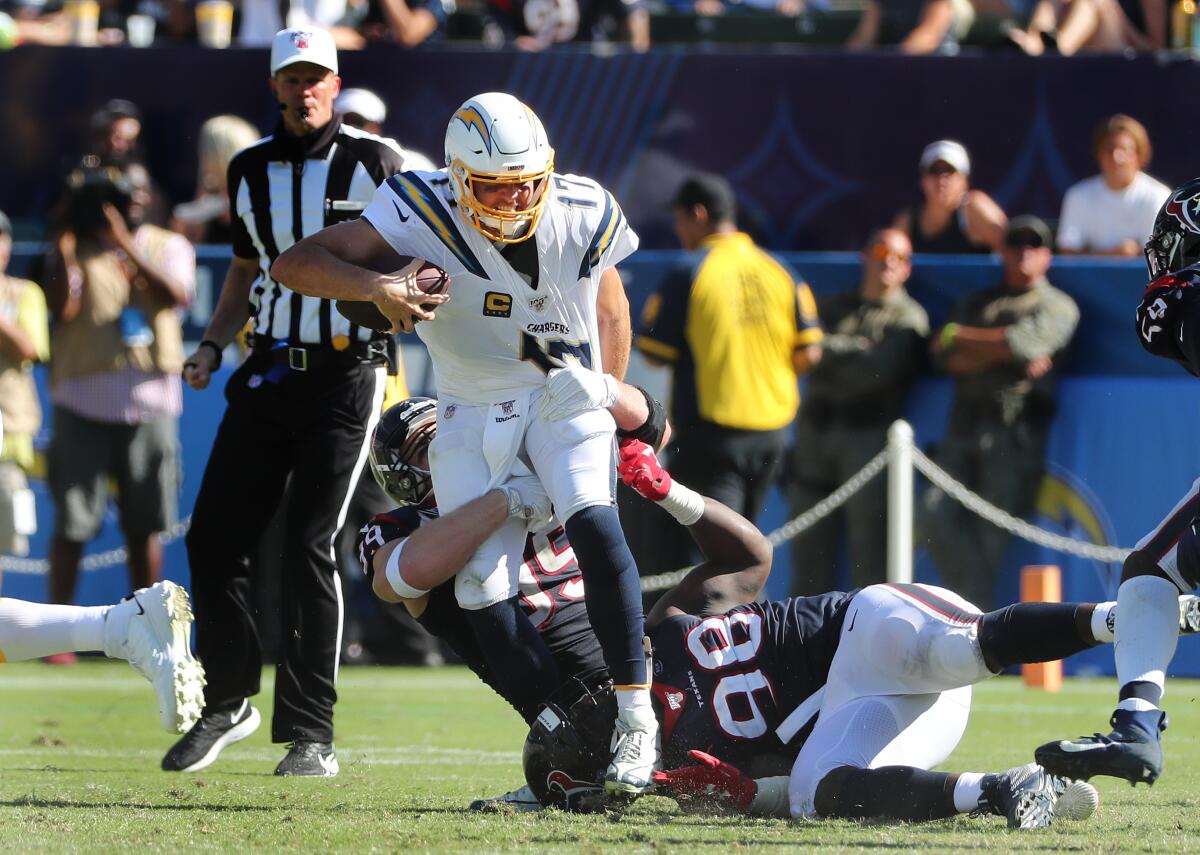
- Share via
They won last year with late-game offense and defense, on last-play kicks and final-gasp tips. They won just about every way possible, usually with the time short and the drama high.
In 2018, the Chargers won by making the most important plays at the most crucial moments. That seems like a long time ago now, these grinding, gnawing defeats capable of ruining a season — and fast.
The Chargers lost Sunday to Houston 27-20 when, for the second consecutive weekend, they failed to execute late when executing late was the only remaining path to victory.
“We’re not the type of team that gets in those situations and folds,” safety Rayshawn Jenkins said. “I expect us to come out on top in those situations. It’s disappointing to have a result like that.”
A week ago in Detroit, the Chargers self-destructed in a parade of glaring gaffes and unfulfilled opportunities.
Chargers’ Keenan Allen played role of slayer again with 13 catches and two touchdowns, but no one else picks up slack in 27-20 loss to Texans.
Against the Texans at Dignity Health Sports Park, they blew a 10-point halftime lead, lost two potential game-altering plays to penalties and simply couldn’t lock their arms around quarterback Deshaun Watson.
“We can’t allow certain things to keep happening,” linebacker Thomas Davis said. “We just gotta be better. We just gotta execute better.”
Including the playoffs, the Chargers were 7-1 last season in one-score games. That’s all they’ve played so far in 2019, and they’re 1-2.
As a few players pointed out afterward, they could almost as easily be 3-0. Then again, they also could be 0-3, their season-opening victory over Indianapolis requiring overtime.
“We have to figure out a way to finish,” coach Anthony Lynn said. “Hell, when we’re up by 10, I’m almost nervous. When we’re down, I’m OK because I know what these men are going to do.”
The Chargers were up 17-7 entering the third quarter Sunday and then everything went sour.
Houston scored the next 20 points, the Chargers unable to reach the end zone after halftime for the second game in a row.
They did rally to close to within a touchdown on a 43-yard field goal by Ty Long midway through the fourth quarter. After the defense forced a punt, quarterback Philip Rivers and the offense returned with a chance to pull even.
Starting on their 16-yard line with 4:19 to go, the Chargers converted a pair of fourth downs and gained three first downs. Rivers completed four passes — each to Keenan Allen — for 50 yards. But he also was sacked once and, unable to find an open receiver, twice forced to scramble.
Travis Benjamin, sprinting over the goal line, couldn’t hold on to a pass that would have been a 42-yard touchdown.
A 17-yard completion to Mike Williams — a play that would have put the Chargers at the Houston seven-yard line — was wiped out by a holding call on left tackle Trent Scott.
The Chargers were unable to protect a halftime lead for the third time this season. The team has been outscored 45-16 in the second half.
Finally, having stalled at the Texans’ 34, Rivers’ final two attempts — first to Williams on third down and then to Dontrelle Inman on fourth — fell incomplete and the defeat was official.
“Really good disciplined, fundamental teams don’t make the mistakes we’re making right now,” Davis said. “We still have a chance to right those wrongs. That’s something we have to do, and we have to do it quickly.”
The Chargers hadn’t lost back-to-back games since the middle of the 2017 season.
But last season’s team managed to mostly avoid the crushing penalties such as the late holding call on Scott and another holding call — this one on Dan Feeney — that nullified a six-yard touchdown run by Justin Jackson in the second quarter. (A pair of offsetting penalties also disallowed an interception by Jenkins.)
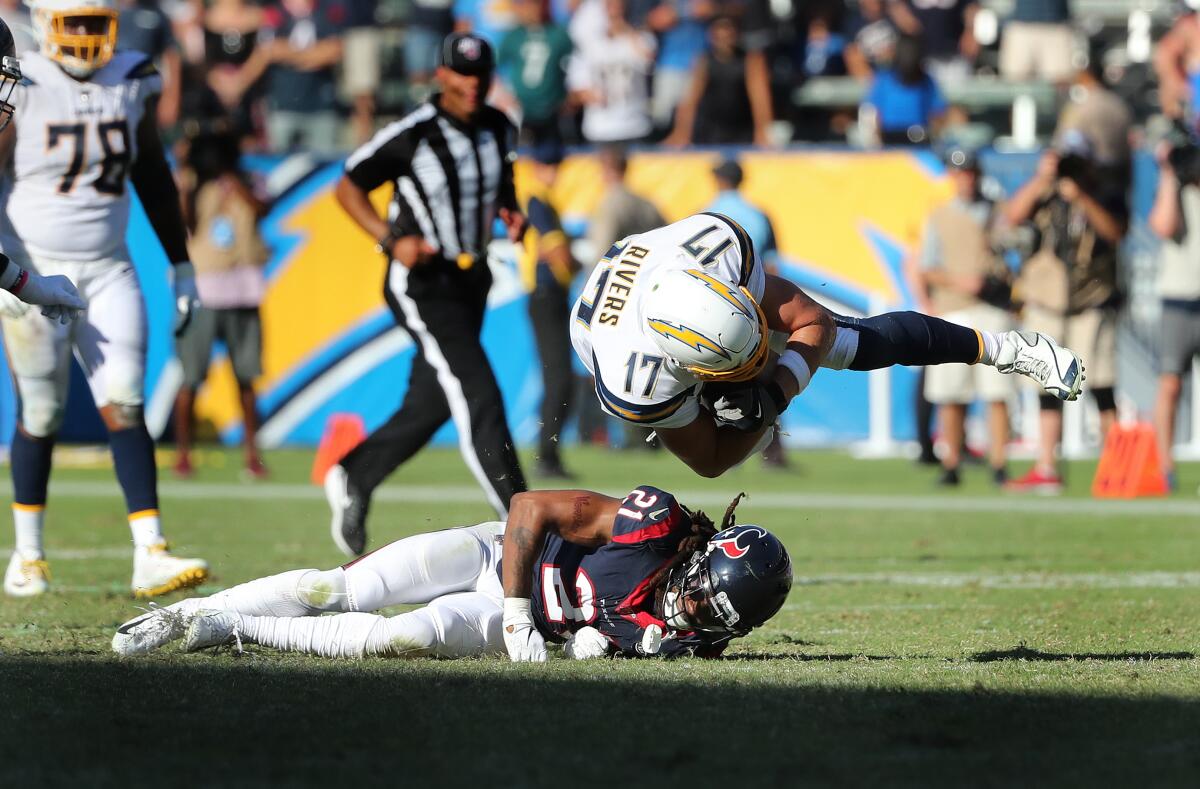
The Chargers have lost three touchdowns because of penalties over the past two games.
“As a coaching staff, we gotta get that right,” Lynn said. “We plan on getting that right.”
Allen finished with 13 receptions for 183 yards and both of the Chargers’ touchdowns. Rivers was 31 of 46 for 318 yards. But it was the other quarterback who ultimately made the deciding plays.
Scrambling ability of Houston’s DeShaun Watson forces the Chargers linemen to chase him around the pocket and defensive backs to cover receivers longer.
Watson threw for 351 yards and three touchdowns and tormented the Chargers with his elusiveness. They sacked him twice despite having repeated and obvious chances for many more.
“Their quarterback played better than our whole defense,” Lynn said. “He was a giant all day.”
So, for the second straight season, the Chargers are 1-2. Their defeats last September came against Kansas City and the Rams, both eventual playoff teams. They responded by winning their next six games and 11 of their final 13 to advance to the postseason.
Lynn said that performance “means absolutely nothing” as it relates to these Chargers. It’s a different group, a different season.
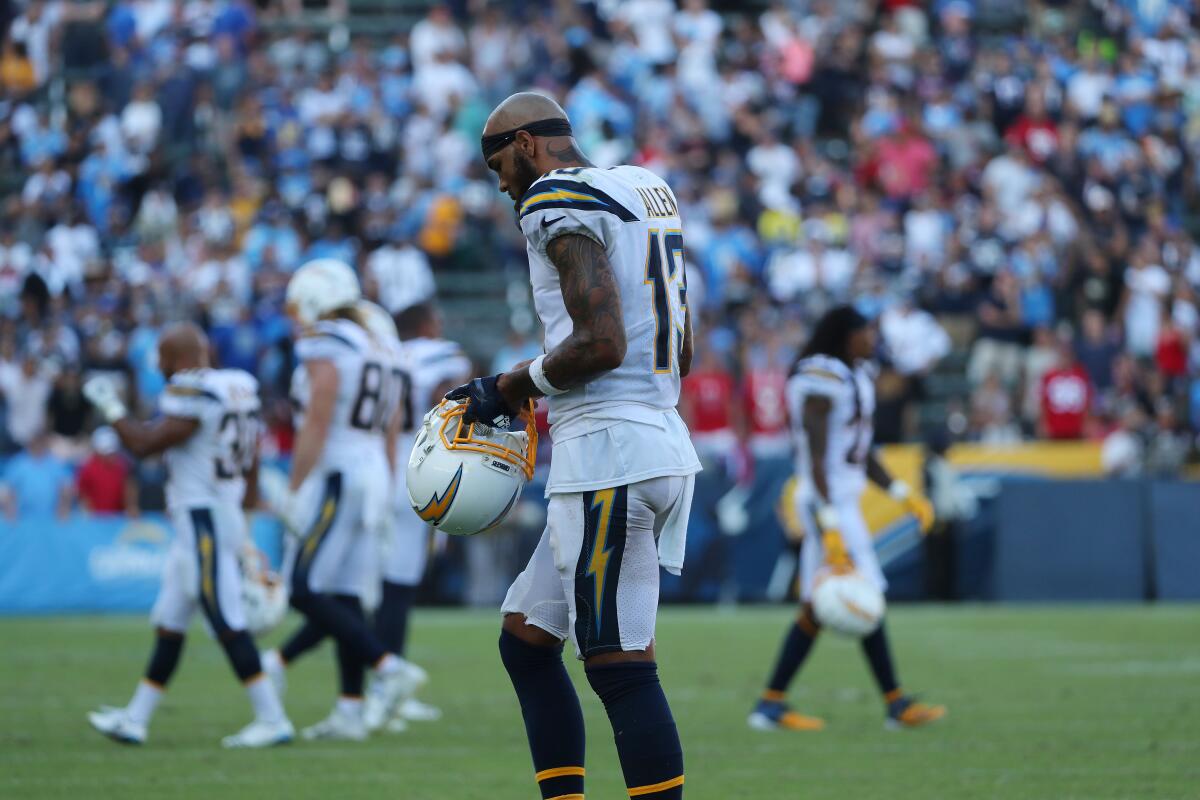
“It’s not like these teams are just coming in here and doing whatever to us,” Jenkins said. “We’re beating ourselves at the end of the game. We have to come together and find our own identity. It’ll happen. We’re close.”
The Chargers have been close for two consecutive weeks. Just not close enough.
More to Read
Go beyond the scoreboard
Get the latest on L.A.'s teams in the daily Sports Report newsletter.
You may occasionally receive promotional content from the Los Angeles Times.

